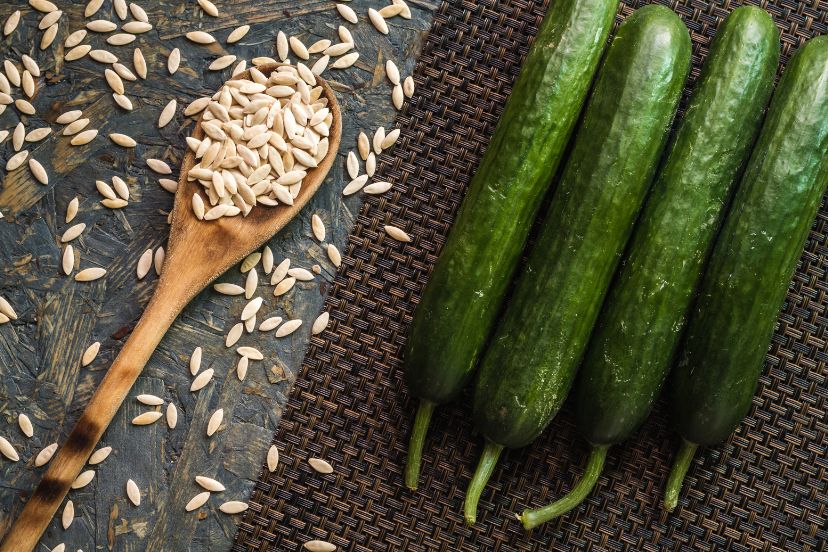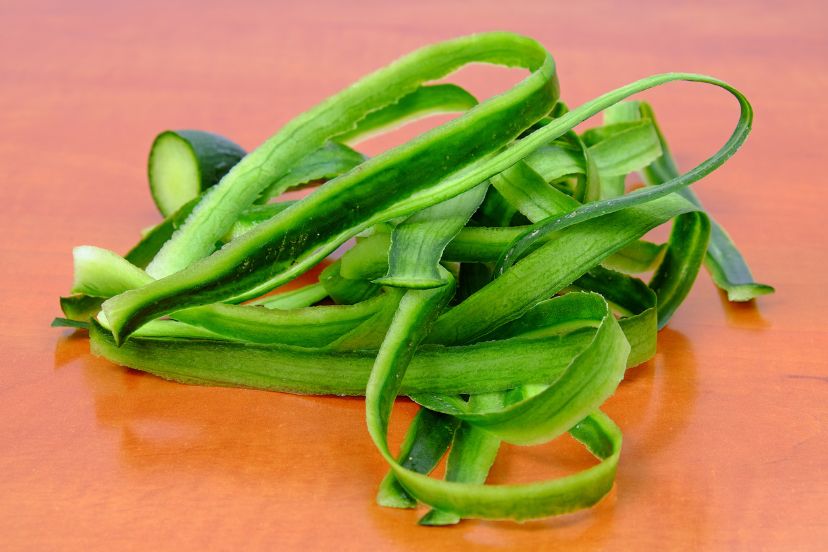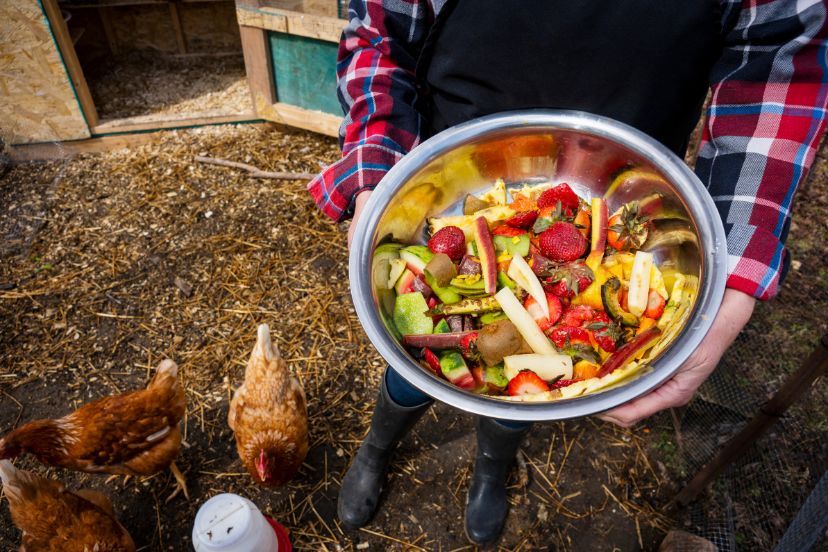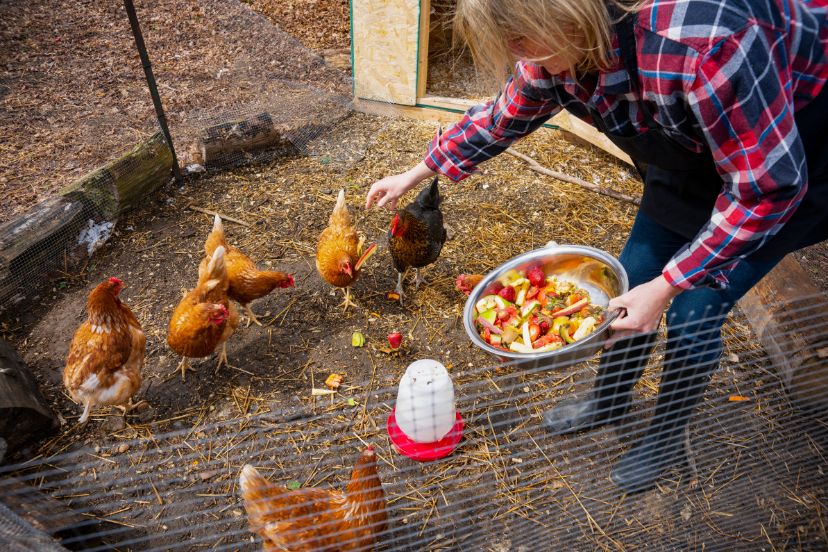Can Chickens Eat Cucumbers?
Foliage naturally finds its way into a chicken’s menu, yet a common query remains: can chickens eat cucumbers? Chickens have a palate for diverse greens, and cucumbers are no exception. These veggies serve as harmless treats for your hens, offering hydration and a refreshing touch, particularly in the hotter months. You’ll soon notice their fondness for cucumbers, relishing every section of this juicy delight!
The Nutritional Benefits of Cucumbers
Cucumbers, often found crisp in our salads or soothing our eyes in spa treatments, are not just meant for human enjoyment. They can equally delight and nourish our poultry friends—specifically, chickens.
Vitamins and minerals
One of the standout features of cucumbers is their rich vitamin and mineral content. They are teeming with vital nutrients that play pivotal roles in bodily functions. Vitamin K, for instance, is crucial for bone health and blood clotting. Then we have potassium, which is vital for maintaining proper muscle contractions and heart functions. Not to be overlooked, magnesium plays an integral role in nerve functions, muscle movements, and the immune system. By incorporating cucumbers into a chicken’s diet, one essentially fortifies them with these indispensable nutrients, ensuring they lead a healthy and active life.
Hydration for chickens
Water intake is a crucial aspect of any living being’s diet, and for chickens, hydration is paramount, especially in warm climates or during summertime. Now, imagine a source of hydration that’s tasty and packed with nutrients. Enter cucumbers. These green delights consist of approximately 95% water. This makes them an ideal snack for chickens, particularly on hot days when dehydration risks are high. Offering cucumbers to your flock is akin to handing them a chilled bottle of water after a vigorous exercise session. Not only does it quench their thirst, but it also provides them with essential nutrients. The result? Happy, hydrated hens that are buzzing with health.
| Nutrient | Value |
| water | 137 g |
| calories | 17 |
| protein | 0.8 g |
| fat | 0.2 g |
| carbohydrate | 3.1 g |
| fiber | 1 g |
| calcium | 19.9 g |
| iron | 0.3 mg |
| magnesium | 17 mg |
| phosphorus | 29.8 mg |
| potassium | 193 mg |
| sodium | 2.8 mg |
| folate | 19.9 mcg |
| beta carotene | 44 mcg |
| lutein & zeaxanthin | 22.7 mcg |
| vitamin C | 4.5 mg |
| vitamin K | 10.2 mcg |
Seeds and skin: Friend or foe
Cucumbers are undeniably a nutritious treat, but when it comes to feeding them to chickens, certain parts demand closer examination. While most parts of the cucumber are safe, the seeds can sometimes be hard for chickens to digest. And the skin, though packed with nutrients, might contain pesticides if not sourced organically.
Can chickens eat cucumber seeds?

Within the cool, watery flesh of the cucumber lie its seeds. For humans, these seeds are often consumed without a second thought. However, for chickens, it’s a different story. The seeds, due to their structure and composition, can pose a digestive challenge for our feathered friends. While they’re not inherently toxic or harmful, their digestibility can vary based on the chicken’s age, health, and individual digestive system. Hence, it’s often recommended to be cautious and monitor your chickens when introducing them to cucumber seeds for the first time.
Can chickens eat cucumber peels?

The outer layer or skin of the cucumber is a powerhouse of nutrients. Rich in fiber and containing a concentration of certain vitamins and minerals, it seems like a no-brainer to include when feeding chickens. But there’s a catch. If the cucumbers are not organically grown, their skin might be laden with pesticides, chemicals, or other harmful residues. These substances can be detrimental to chicken health if consumed. Therefore, if you’re uncertain about the origin or cultivation practices of the cucumbers, it’s wise to either peel off the skin or ensure a thorough washing before offering them to your flock.
Other safe treats for chickens
While cucumbers are an undoubtedly delightful treat for our poultry pals, the world of chicken treats is vast and varied. Venturing beyond cucumbers can lead you to discover a variety of foods that not only delight your chickens but also offer a plethora of nutritional benefits.

Vegetables
Vegetables are a fantastic way to add variety, texture, and nutrition to your chickens’ diet.
Leafy Greens: Foods such as kale, spinach, and lettuce can be a hit with your flock. Rich in essential vitamins and minerals, these greens can contribute to the overall health of your chickens.
Carrots: These can be offered both cooked and raw. Their crunchy texture and sweet taste can be a favorite among many hens.
Broccoli: These miniature tree-like veggies are not only nutritious but can also be fun for the chickens to peck at. Whether raw or steamed, they’re a hit!
Fruits
Fruits are the sweet, juicy treats that chickens often cannot resist.
Apples: Ensure they’re seedless, but these can be a crunchy treat that many chickens adore.
Bananas: Soft and sweet, bananas can be a treat, especially if given without the peel.
Grapes: While loved by many chickens, it’s crucial to offer them in moderation and preferably halved to avoid choking.
Berries: with their bright colors and juicy texture, can often be irresistible to chickens. Whether it’s strawberries, blueberries, or raspberries, the allure of a juicy berry is hard for a chicken to resist. It’s a sight to behold as they chase and peck at these small treats, enjoying each burst of flavor.
Preparation tips for feeding
Feeding cucumbers to chickens isn’t just about tossing them into the coop and hoping for the best. Just as we take care when preparing meals for our families, we ought to show the same level of care and attention when feeding our feathered family members.
- The first step in any culinary adventure is selecting quality ingredients. When shopping for cucumbers to feed your chickens.
- Organic cucumbers come with an assurance that they’ve been grown without synthetic pesticides or fertilizers. This means you’re giving your chickens a treat that’s as pure and natural as it can get.
- The skin of the cucumber holds many of its nutrients, but it can also be a repository for chemicals if the cucumber isn’t organic.
- If the cucumbers you’ve purchased aren’t labeled as organic, or if you’re uncertain of their provenance, it’s wise to err on the side of caution and peel them. After all, a few missed nutrients are a small price to pay for ensuring the health and safety of your flock.
- Just as toddlers might struggle with large chunks of food, chickens too find it easier to handle food presented in bite-sized portions.
- Instead of giving them whole cucumbers or large pieces, slice the cucumbers into smaller, manageable segments. These are not only easier for them to pick up and eat, but it also reduces the risk of choking or digestive issues.
When should chickens skip on cucumbers?
Cucumbers are typically a safe treat, provided they’re free from harmful pesticides and any signs of mold. Only offer cucumbers to your chickens that meet your own standards for consumption. Steer clear of cucumbers that show yellowing, indentations, or those with shriveled ends.
Mold is a strict no-no. Its presence can be detrimental to a chicken’s health, hampering digestion and potentially leading to severe infections. Also, be cautious with elongated slivers of cucumber peels. Without teeth, chickens can’t break these down easily. Such long strips might pose a choking hazard or get lodged in their crop.
While both raw and cooked cucumbers are fine, it’s essential to be mindful of any added ingredients. Steer clear of serving them cucumber-based dishes that contain non-chicken-friendly ingredients, like certain dressings or onions.
Moderation is key
Every aspect of life, especially when it comes to diet and nutrition, thrives on balance. This is encapsulated perfectly in the adage, “Too much of a good thing can be bad.” Just like humans, chickens require a varied diet that comprises different nutrients, vitamins, and minerals to thrive. Each food item they consume contributes a unique set of nutrients to their diet.

While cucumbers are generally easy on the stomach, any sudden and excessive change in a chicken’s diet can potentially disrupt their digestive system. Introducing a large amount of cucumber, or any new food for that matter, all at once can lead to digestive upset or other related issues. Just as we wouldn’t enjoy eating the same meal every day, chickens too appreciate variety in their diet. Feeding them cucumbers as a primary food source not only deprives them of nutritional variety but can also cause them to miss out on the excitement of different treats.
Even though cucumbers are predominantly water, overconsumption might still pose concerns. Overhydration, although rare, is a possibility. Additionally, if the cucumbers have any pesticide residue, frequent and excessive consumption could amplify potential health risks.
Can chickens eat cucumbers, still a yes! But they should complement the primary diet rather than dominate it. By ensuring moderation, one can make certain that the flock enjoys the benefits of cucumbers without facing potential drawbacks. Remember, it’s all about striking the right balance!
FAQs
Can chickens eat cucumbers every day? While they’re safe, it’s best to keep them as an occasional treat.
Are the seeds harmful to chickens? Not necessarily, but they can be hard to digest. It’s best to remove them.
Should I be worried about pesticides on cucumbers? Opting for organic cucumbers or washing and peeling them can help alleviate these concerns.
Can chickens eat pickled cucumbers? It’s best to avoid pickled foods due to their high salt content.
Apart from cucumbers, what other treats can I offer my chickens? Fruits, other vegetables, and even some grains can be great choices. Just make sure they’re safe for chicken consumption.




